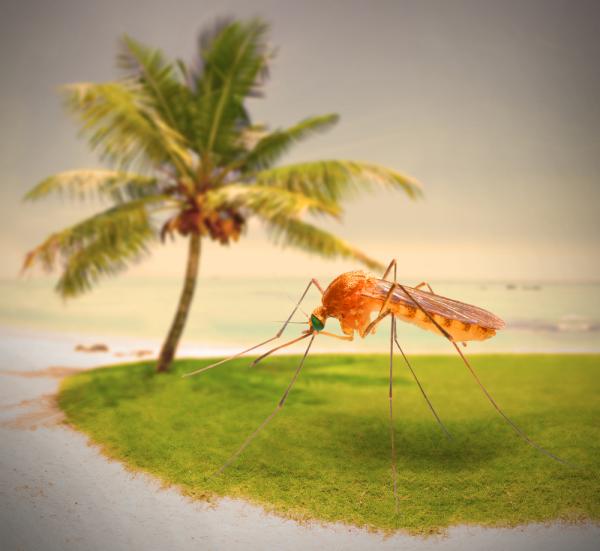To people living in the Caribbean, a mosquito bite is far more than an itch. Each one brings the potential of contracting a deadly disease. Facing that daily reality could make even the most science-averse person jump onto the biotech bandwagon, including the release of genetically modified mosquitoes to prevent infection, and the people of the Caribbean island of Saba are leading the way.
To investigate some concerns about the release of genetically modified mosquitoes, the Executive Council of Saba requested an evaluation by The Netherlands National Institute of Public Health and the Environment's (RIVM) Genetically Modified Organisms Office. Saba is one of the three Caribbean special municipalities of The Netherlands (along with Bonaire and St. Eustatius).
The results of the evaluation have been published in a report, and the conclusion is clear - the release of the mosquitoes would not pose any risks to human health and the environment.
The overall goal of releasing the Oxitec mosquitoes is to reduce the overall population of mosquitoes. The mosquitoes are genetically modified so that offspring die at an early age - too young to be able to bite humans.
The mosquitoes have been released in parts of Brazil, Grand Cayman, India, and Panama and have reported a decline in mosquitoes of up to 90% Fewer mosquitoes mean less transmission of viruses.
We have long been proponents of using genetically modified mosquitoes to stop the spread of vector-borne illnesses such as dengue, chikungunya and Zika virus. However, convincing people that genetically modified organisms pose no risk can be an uphill battle. People fear that released the organisms into the environment could cause unknown harm to their environment or themselves. Some of the concerns addressed in this report are the potential ecological effects releasing the mosquitoes could have on the local ecosystem’s food chain (namely animals that rely on mosquitoes for food) or human health effects caused by accidental ingestion.
People may still be nervous about genetically modified mosquitoes being released in their backyard. The release of the same mosquitoes was delayed in Florida last year when one area, Key Haven, voted no (in and among many others counties that voted in favor of it.) Hopefully, this report will answer some lingering questions regarding genetically modified mosquitoes and, in doing so, will move the needle in favor of releasing them. Although genetically modifying something might seem scary - Zika virus is much, much scarier.




